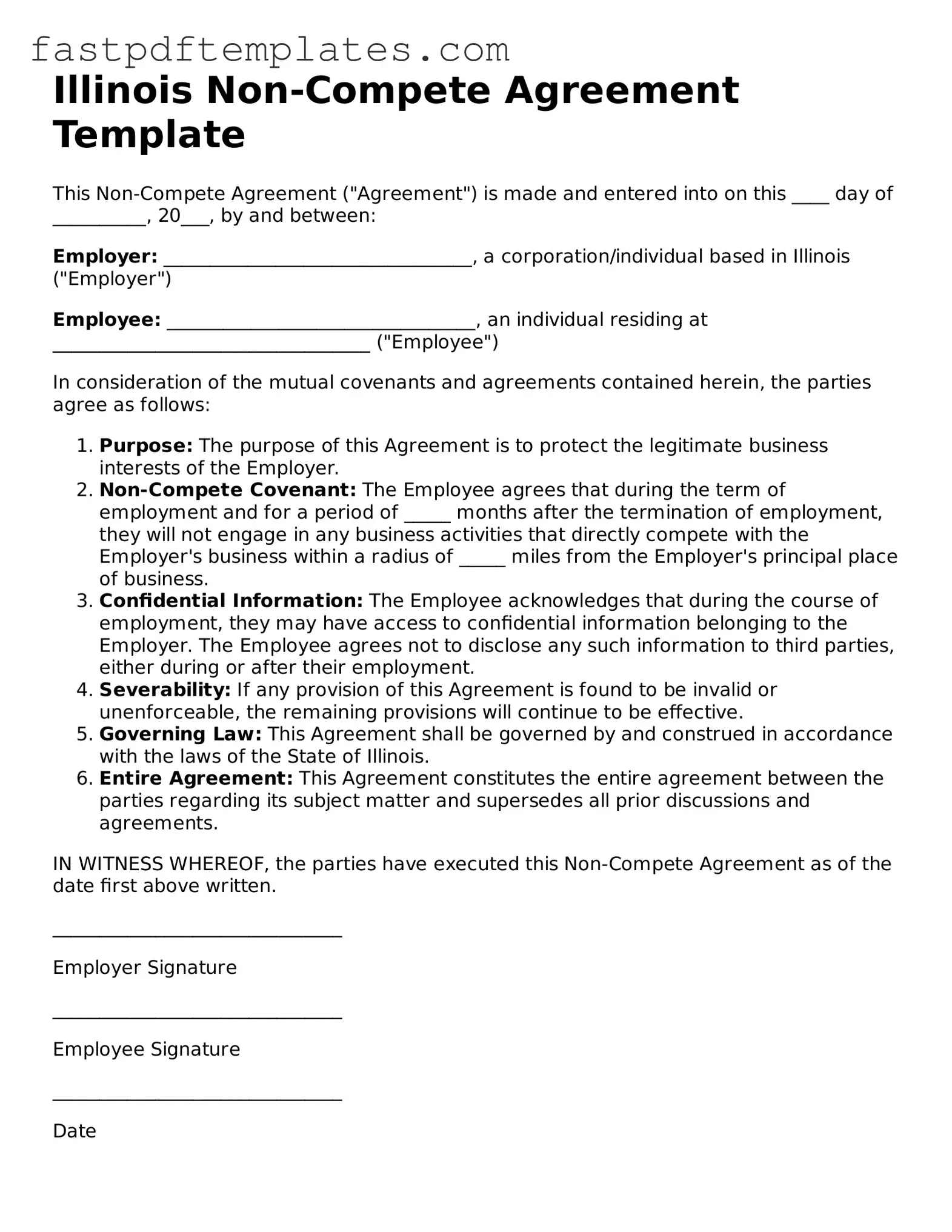Attorney-Approved Illinois Non-compete Agreement Document
A non-compete agreement is a legal contract that restricts an employee's ability to work for competitors or start a similar business for a specified period after leaving a job. In Illinois, specific guidelines govern the enforceability of these agreements, ensuring they are reasonable in scope and duration. Understanding the Illinois Non-compete Agreement form is essential for both employers and employees to navigate their rights and obligations effectively.
Access Document

Attorney-Approved Illinois Non-compete Agreement Document
Access Document
Your form still needs completion
Complete your Non-compete Agreement online and download the final PDF.
Access Document
or
Click for PDF Form
